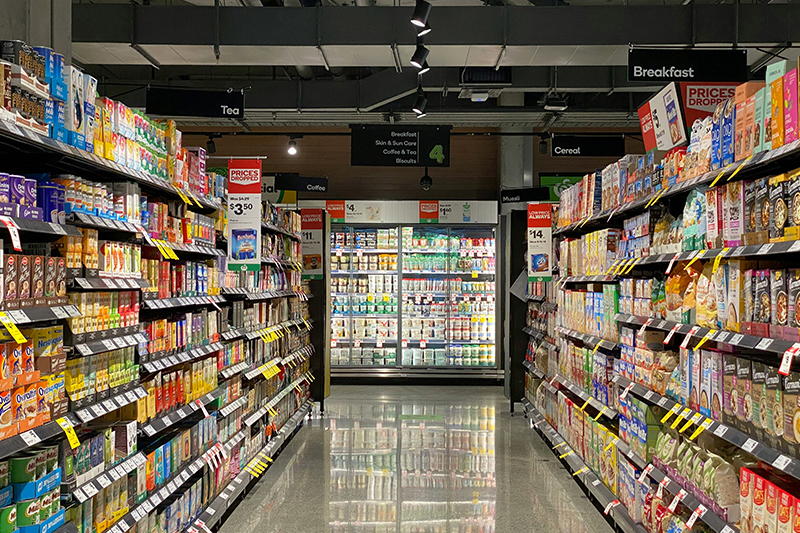Dealing with FMCG Difficulties in Singapore
In the lively commercial system of Singapore, the Fast-Moving Consumer Goods (FMCG) sector is like backbone, strong by rapid turnover and tough competition. Nevertheless, the sector also has distinct difficulties which come often unlike other sectors. In the FMCG sector, the most difficult thing is demand forecasting, which is the consequence of frequent changes in consumer preferences. Inventory management also increases in complexity, as the goods of short life require specific tracking to cut down waste. Also, in Singapore, the firms of FMCG are obliged to comply with the local laws of food safety and consumer protection that are very stringent, making it even harder for them. On the other hand, there are some difficulties, like supply chain disturbances and the urgent need for digital transformation, which are also common with other industries in Singapore and therefore require a versatile approach for effective management.

The Changes in FMCG Operations Because of POS Systems
In such a rapid-changing market, the adoption of a Point-of-Sales (POS) system might be a real game-changer. The introduction of a well-integrated POS system can cut down the retail operation issues almost to zero, since it is capable of enhancing the efficiency of store operations through the automation of tedious and mundane tasks. The addition of a POS system provides real-time data on the existing ventages, allowing the store owners to plan according to stock availability, reduce waste, and always have the required products as per consumer demand. In addition, lots of POS systems allow firms to comply with regulations by automating record-keeping and reporting processes that are mandatory for the businesses to adhere to the laws in Singapore. Furthermore, in the context of a digital transformation, POS systems allow retailers to engage their customers better by means of personalized incentives and loyalty programs besides improving customer service and retention. To be honest, implementing an advanced POS system does not only help to solve day-to-day operational issues, it also empowers the FMCG retailers to sustain and grow their competitive edge.
POS Implementation Steps to Guarantee Success
It goes without saying that the whole process of installing a POS system is no bed of roses and it needs a proper plan followed by execution. To get this right, the firms should start with a clear set of business objectives that the POS system has to be aligned with. In addition, getting the main stakeholders onboard to ensure the selected system meets the whole organizational requirements is a good way of doing it. Exercises on system operation should be carried out by qualified personnel in order to avoid the pitfalls that the training process could otherwise cause and to maintain optimum efficiency. Furthermore, a POS solution that is capable of scaling up when the business is growing will definitely maximize the return on investment. Joining hands with experienced vendors can make the process of implementation easier, along with extra support and their expertise where needed.
Multiable POS System: The Solution for FMCG Problems
The Multiable aiM18 POS system has five key features which helped FMCG firms in Singapore to tackle major operational challenges:
- Chain Store Management: Streamlined Operations: This feature propels cohesive operations along with multiple stores, as so every retail manager could be able to manage their store efficiently through a standardization process.
- Real-time Integration of Product Database: Enhanced Accuracy: This feature adds value by not only integration with e-Commerce but also relationship management solution (ERP) and POS systems which maintain data consistency and prevent product information discrepancies.
- Automatic Logistics Service Provider Selection by A.I.: Optimized Supply Chain: Integration of AI in logistics proves highly beneficial as it leads to effective supply chain management, diminishes problems and improves delivery channels.
- Stored Value Facility: Encouraged Loyalty: This strengthens customer retention by providing various payment options and rewards on repeated purchases in the FMCG sector.
- Price Robot: Competitive Pricing: By means of automating competitive pricing strategies, retailers will always have a chance to come out the winner in a price-sensitive market against their competitors.
Integrating Multiable ERP for Seamless Operations
Multiable ERP provides integration not only with e-commerce platforms like Shopify, Amazon, and Lazada in real-time but also visible for the user as the firm’s effective solution in controlling online sales offices and maintain the standard on several platforms. The Multiable ERP is recognized by IRAS as an ASR+ software vendor and thereby commits to operational efficiency maximization and compliance with the standards set by the government in Singapore.
What is Multiable POS ?
Multiable POS is a cloud-native POS targeting retail groups with sizable chain stores in Singapore, Malaysia, Hong Kong and China. With over 6,000 customers in the region, Multiable POS gains positive feedbacks from public companies and multinationals across different sectiros, from cosmetics, furniture, fashion, healthcare, pharmaceutics, sportswear and toys etc. The renowned no-code approach saves customer a big sum of customization costs and countless hours of implementation man-days.
What is LAIDFU (Let AI Do for You)?
LAIDFU is an AI tool for enterprise to build their own AI agents to perform various business AI tasks.
Proprietary EKP (Enterprise Knowledge Partitioning) technology eases CEO’s concern about trade secret leakage which often occurs in most AI agents / chatbots in the market.
EKP removes the hurdle of business AI adoption by most companies in using sensitive corporate data.
Powered by no-code approach, deployment of LAIDFU incurs far less developers (and development costs) in comparison with other AI tools.
LAIDFU empowers business, with or without an ERP system in place.
Contact us
Error: Contact form not found.